Bozho jayek!
Hello everyone!
April 2022
We are excited to bring you news about the work you are helping to fuel and to showcase our recent efforts!
Since the start of 2022, we’ve added schools In three more states — Alaska, Colorado, and Nevada! That means we now are providing period supplies to students and community members in 12 U.S. states — Alaska, Arizona, Colorado, Iowa, Maine, Nevada, New Mexico, Oklahoma, Oregon, South Dakota, Vermont, and Wyoming —and in Canada’s Ontario province.
So far in 2022, we have distributed more than 66,000 period supplies, over 800 of our moon time bags filled with supplies, and 235 puberty education books. Our best estimate is that we served more than 4,300 menstruators this year to date.
And during this same time frame, we received funding from two new sources: The Roundhouse Foundation, which operates out of Oregon, and the Citizen Potawatomi Nation, the sovereign Native Nation of our Founder, Eva Marie Carney, and this newsletter editor, Paige Willett. The January 2022 article on our work in the Daily Yonder prompted Roundhouse to reach out to us. Vice-Chairman Linda Capps spearheaded the Citizen Potawatomi Nation funding in recognition of our partnerships with schools and community-based organizations in Shawnee, Oklahoma, home of CPN’s tribal headquarters, and throughout the rest of the state. New funders and your ongoing support allow us to continue expanding our reach throughout Indigenous North America while meeting our obligations to all of the existing partners we supply with period products.
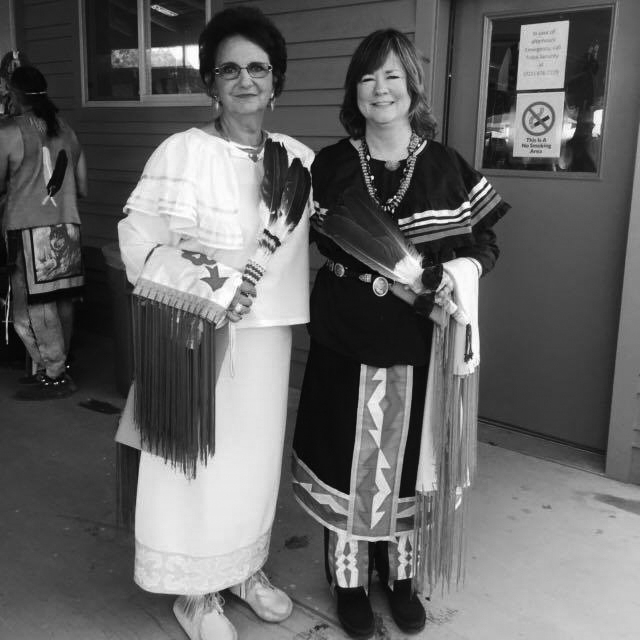
CPN Vice-Chairman Linda Capps (left), who spearheaded CPN’s funding of our work, and The Kwek Society’s founder Eva Marie Carney.
Do you work with Indigenous students who would benefit from our help? We are committed to expanding our reach across Indigenous North America to ensure that no one should have to miss school, work, or activities of daily life while they are on their periods. No one should suffer the indignity of stained clothing, or use period supplies for longer than intended and risk their health. Please reach out to me with thoughts on who we might help next, to “talk periods,” or to share traditional teachings about periods. And please don’t forget to send your ideas for future newsletters to our newsletter editor Paige Willett.
Bama mine,
Until later,
Eva Marie Carney
Founder + Operator

Ch’iwa:l — Hupa coming-of-age ceremony (Flower Dance)
Cutcha Risling Baldy’s book, We Are Dancing for You, explores the cultural revitalization of women’s coming-of-age ceremonies. She notes that these ceremonies demonstrate how women are foundational to their individual communities and how women’s experiences are central to nation-building, culture and spirituality.
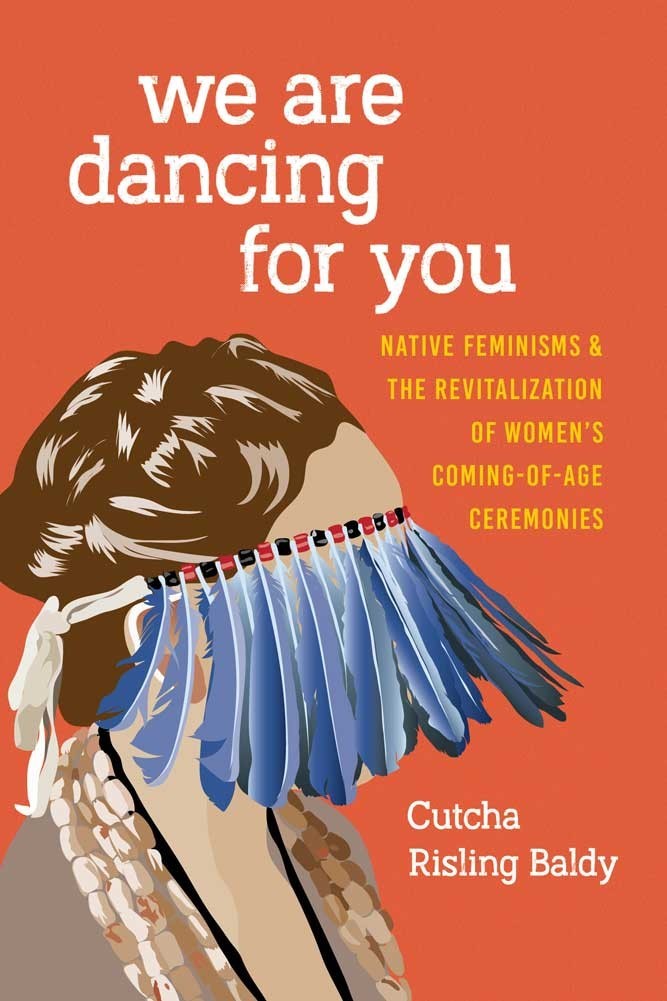
The book includes an account of the Hupa tribal community’s coming-of-age ceremony, Ch’iwa:l, which lasts for three, five, or 10 days and is held after a girl starts menstruating. The ceremony is a public celebration that includes specific practices and ritual guidelines for the new menstruators, called kinahłdung (Flower Dance girls). Running is a significant part of the three-to-10-day ritual activities, as it is believed that how the young woman runs demonstrates how she will live her life. During the day, visiting women who offer advice attend to the young woman; older women teach songs, prayers, and skills. The young menstruator ceremonially bathes in the river and steams with herbs each day. As she picks herbs for her steam bath, she must grind them in a deliberate way.
Dr. Risling Baldy writes: This kind of meaning and metaphorical representation can be found throughout the ceremonial practices, and the Hupa value their community and public aspects. There is no shame in the celebration of a first menstruation and bringing the community together illustrates to the girl (and the community) how important these young women are to the tribe and culture.
Further discussion of the ceremony and of its revitalization can be found here. We celebrate Dr. Risling Baldy’s statement:
We are not sad, dying Indians and this documentation of our revitalizations is not of a dying culture, but instead of a culture that has always envisioned an Indigenous future. In Hupa when we end a story we say hayah-no:nt’ik’, which means “that’s the end of it” or “the story extends to there.” But it has an additional meaning, “it reaches so far,” as if to remind us how our stories stretch into our future and that we are always reaching forward.
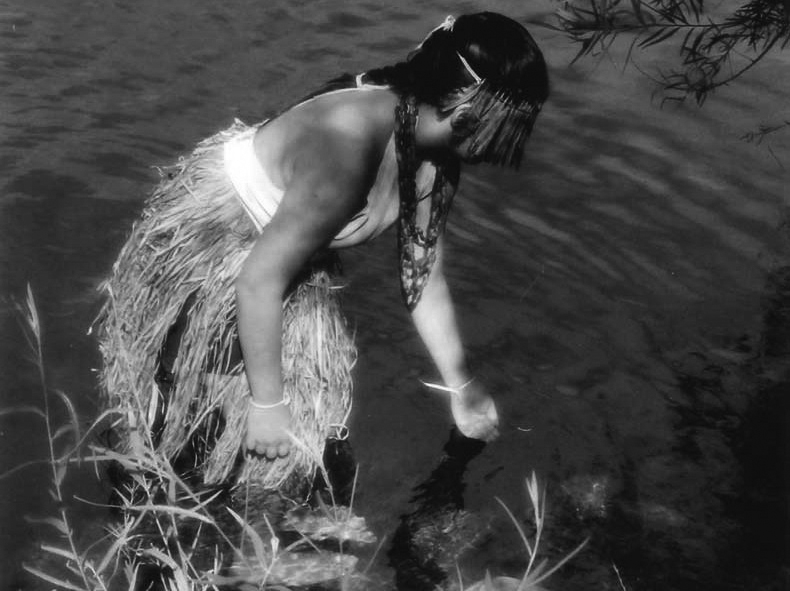
Photo by Trish Oakes, courtesy of Melitta Jackson and Marlette Grant-Jackson
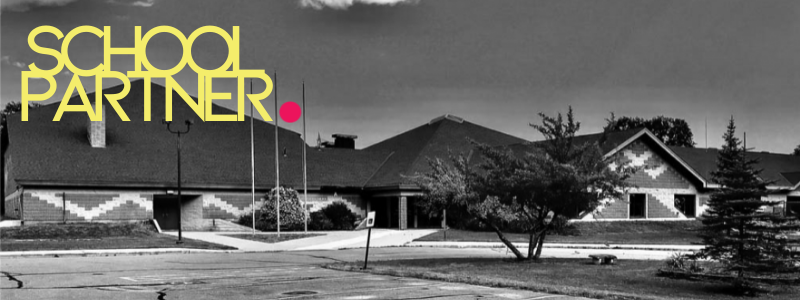
Indian Island School
Northern Maine
We had the pleasure of meeting Tracey Nute and Candi Ewer late last year when we distributed pallets of U By Kotex® tampons furnished through the Alliance for Period Supplies (we are an allied member of APS) to their northern Maine communities and then followed up with the full range of puberty education books and period supplies we offer partner schools.
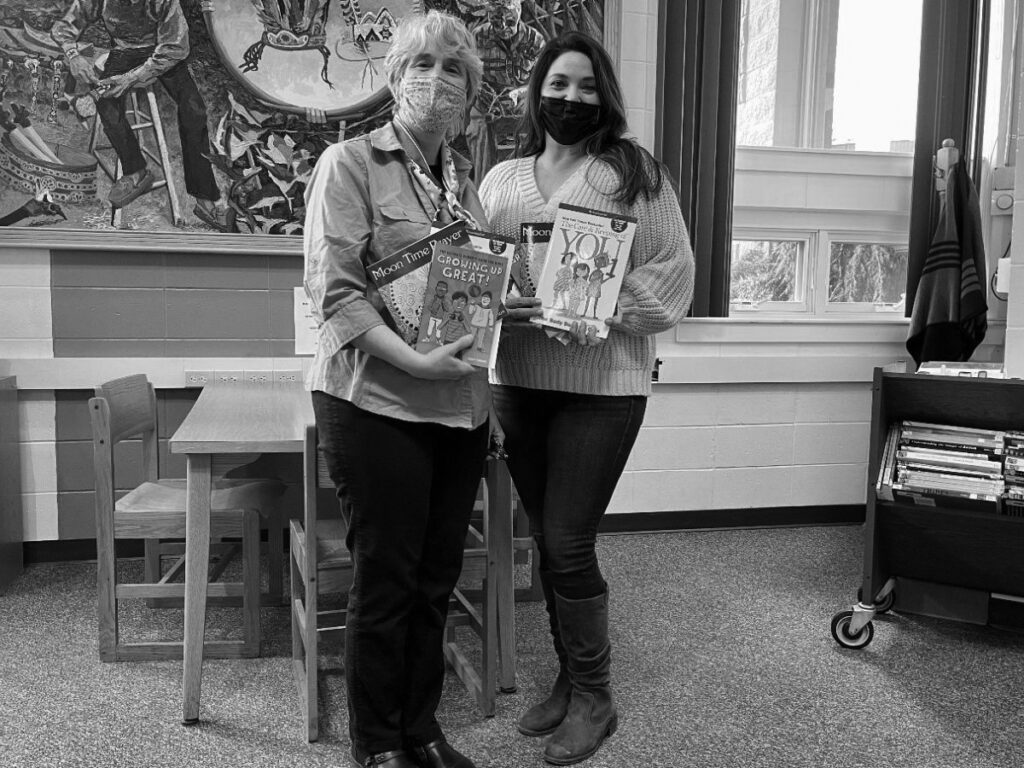
Tracey Nute (left) and Candi Ewer, posing with some of “our” puberty education books now in the Indian Island School Library.
Tracey, School Counselor of Indian Island School, and Candi, Penobscot Nation Tribal Education Director, both earned a M.Ed. in the University of Maine Counselor Education graduate program. They first worked together almost 20 years ago through Indian Island’s sister school at Indian Township, one of the schools serving the Passamaquoddy Tribe. At that time, Candi filled in for Tracey as Indian Township’s school counselor while Tracey took a year-long leave of absence to work in the Maine Indian Education central office. The two friends were happy to work together once again when Tracey accepted the position of school counselor at Indian Island School, the pre-K – grade 8 school that serves the children of the Penobscot Nation.
We at The Kwek Society are happy to be working with these energetic, kind, and lovely kwe’k.

Bras for Girls/Dr. Sarah Lesko
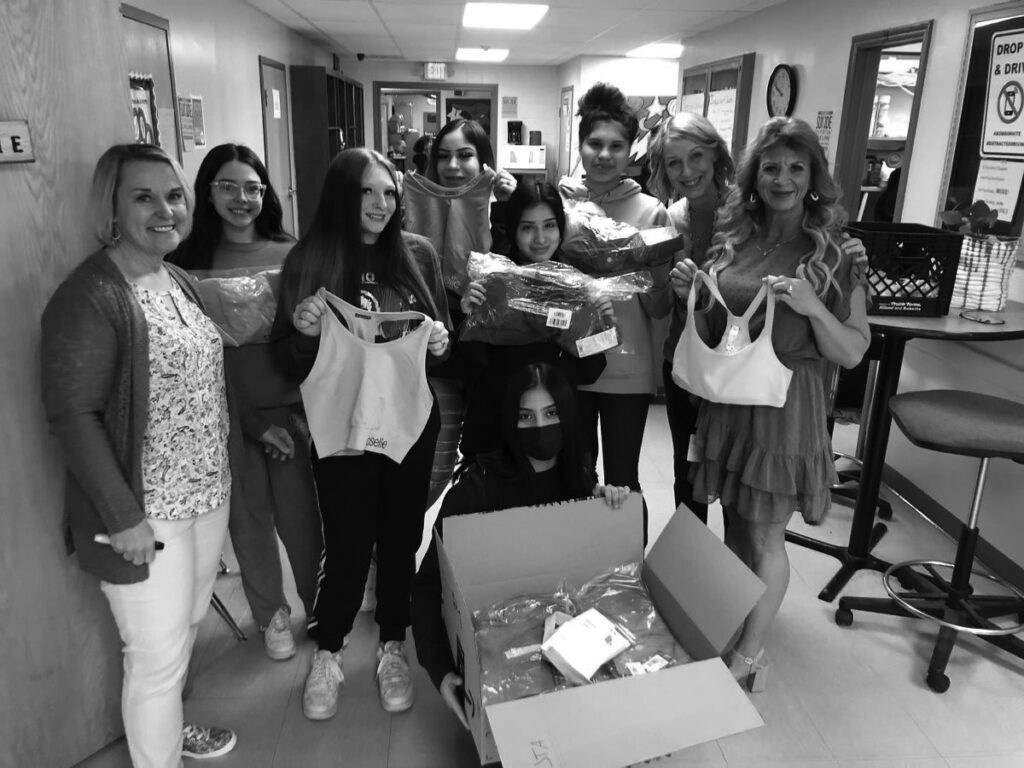
Shawnee (OK) Public School students and staff, with sports bras gifted by Bras for Girls.
We at The Kwek Society are true “fan girls” of Bras for Girls and its CEO, Dr. Sarah Lesko. We were introduced to them in November 2021. Since that introduction, they have gifted more than 800 sports bras to student we support and, fortunately, they are just getting started! Students attending Keet Gooshi Heen (AK) Elementary School, Meskwaki (IA) Settlement School, Wingate (NM) High School, Tohaali (NM) Community School, Shawnee (OK) Public Schools, Chemawa (OR) Indian School, and Wounded Knee (SD) District School and Red Cloud Indian School (SD), all have benefitted to date.
Migwetch (thank you), Bras for Girls and Dr. Lesko, for your support of The Kwek Society and the students we serve!

Barbara Hannigan
Our Board Vice President Barbara Hannigan shared her thoughts about International Women’s Day and her work for The Kwek Society in a recent interview with Goodera.
The Kwek Society is very much focused on women’s rights and making sure that we fill the need to mitigate, to the extent that we can, period poverty. Many people think that period poverty and the inaccessibility of products is just a problem that is faced in more economically disadvantaged countries. But that is not the case. It is a problem in America. And it is a problem in Native communities.

Puberty Education Resources
AMAZE website
AMAZE.org is a site filled with informative videos for youth, educators, and parents. The AMAZE team includes experts in sexuality education, youth sexual development, and parent-child communication that work with animators to develop videos. You can create a password-protected “My Amaze” account, create your own video playlist and share it.
For example, if you’re an educator, you will be able to select and save videos, create unique playlists to integrate into lessons and share links to selected videos/playlists with students. If you’re a parent, you will be able to share specific videos or groups of videos with your children. These playlists will be made available on a protected page that does not have links to the rest of the AMAZE website.
If you explore this resource, we’d love to get your feedback!


The Kwek Society, incorporated in Virginia, is a 501(c)(3) nonprofit organization (EIN # 82-4369803). Donations are tax deductible to the extent allowed by law. Our financial statement is available on written request from the Commonwealth of Virginia’s Office of Charitable and Regulatory Programs, PO Box 1163, Richmond, Virginia 23218. Our Candid/Guidestar report (we earned the 2022 Platinum Transparency designation) can be found here.


Follow
Stay connected.
Share
Give a review.